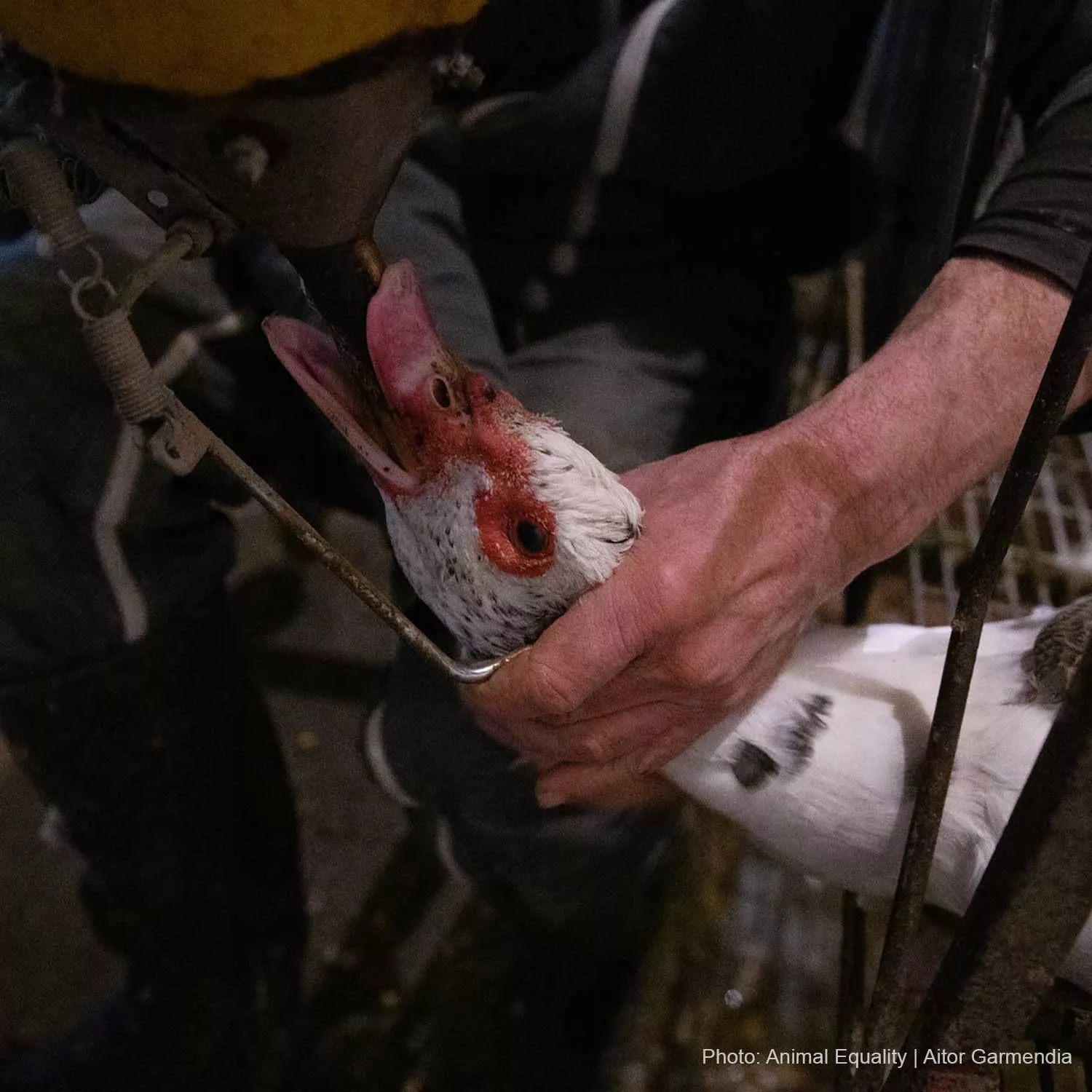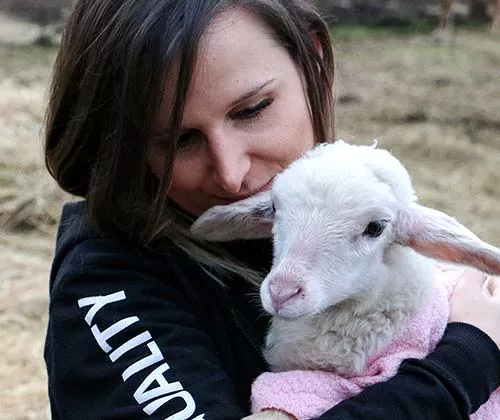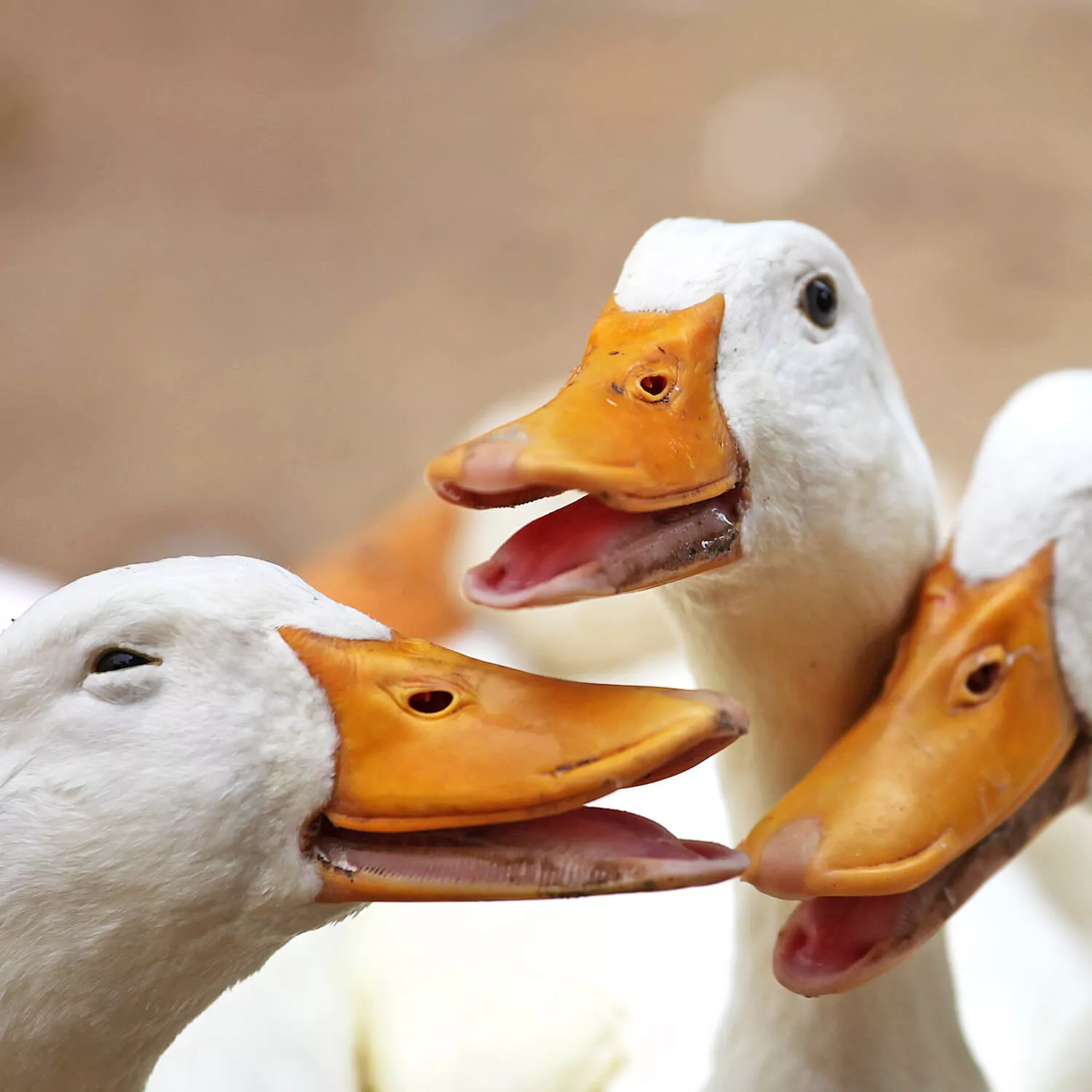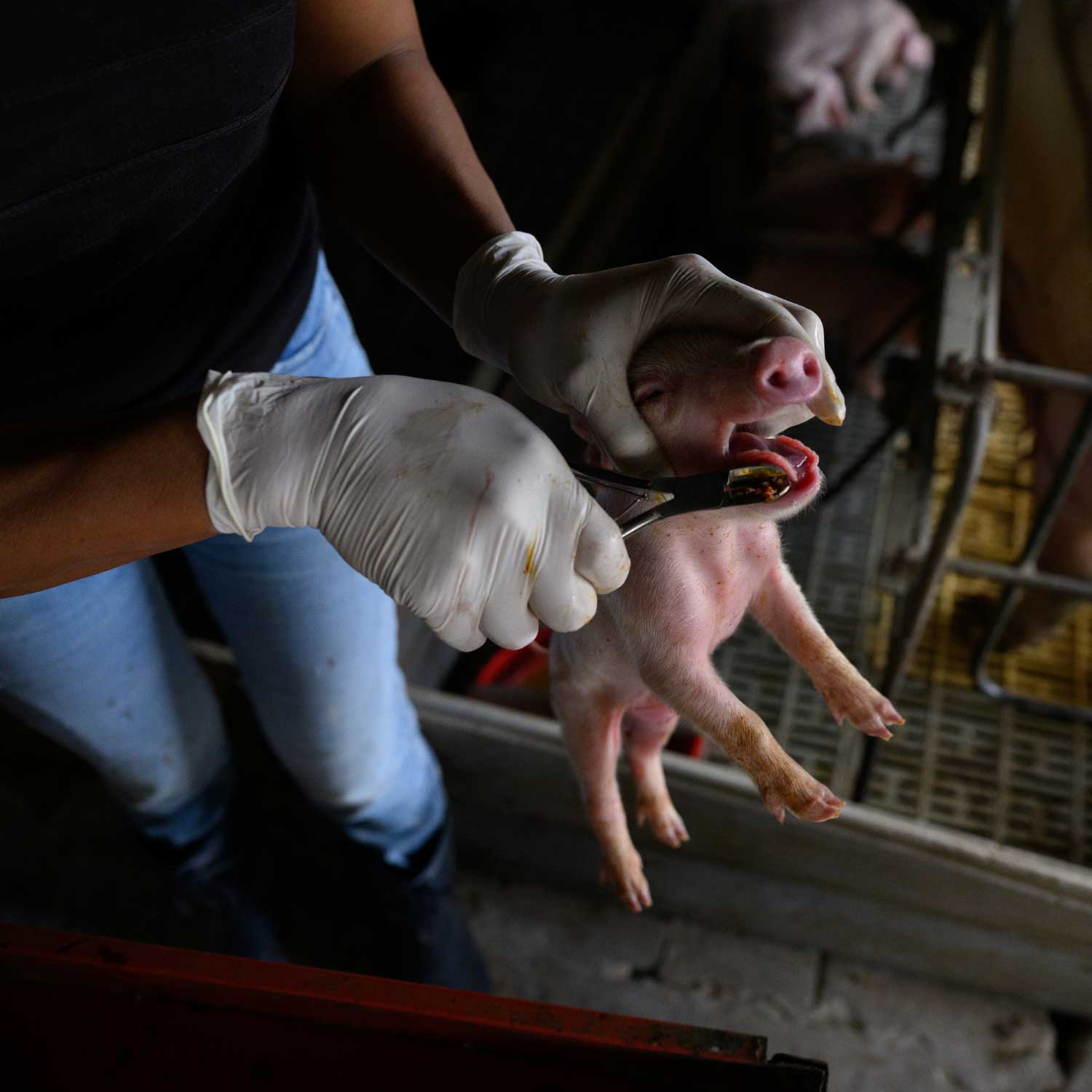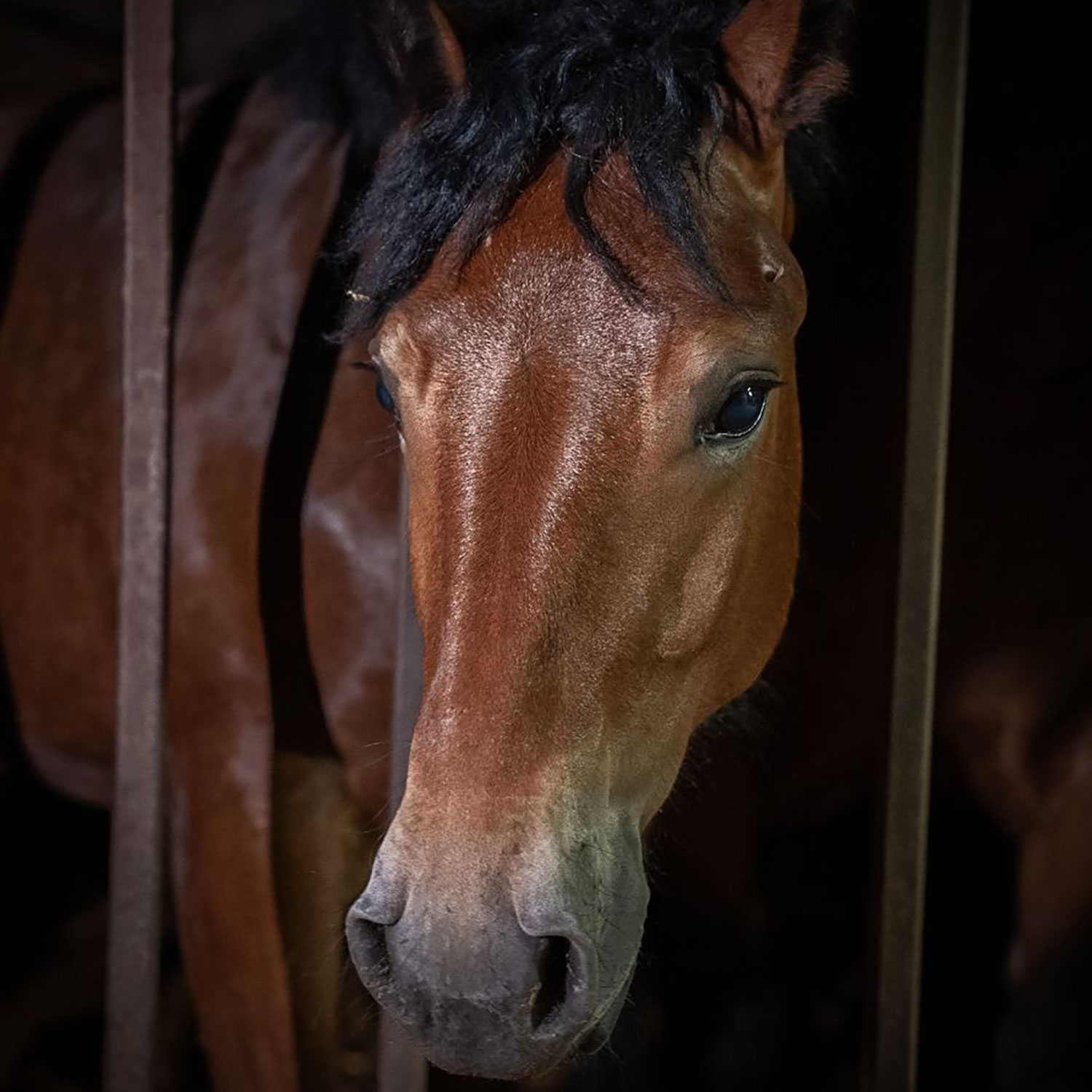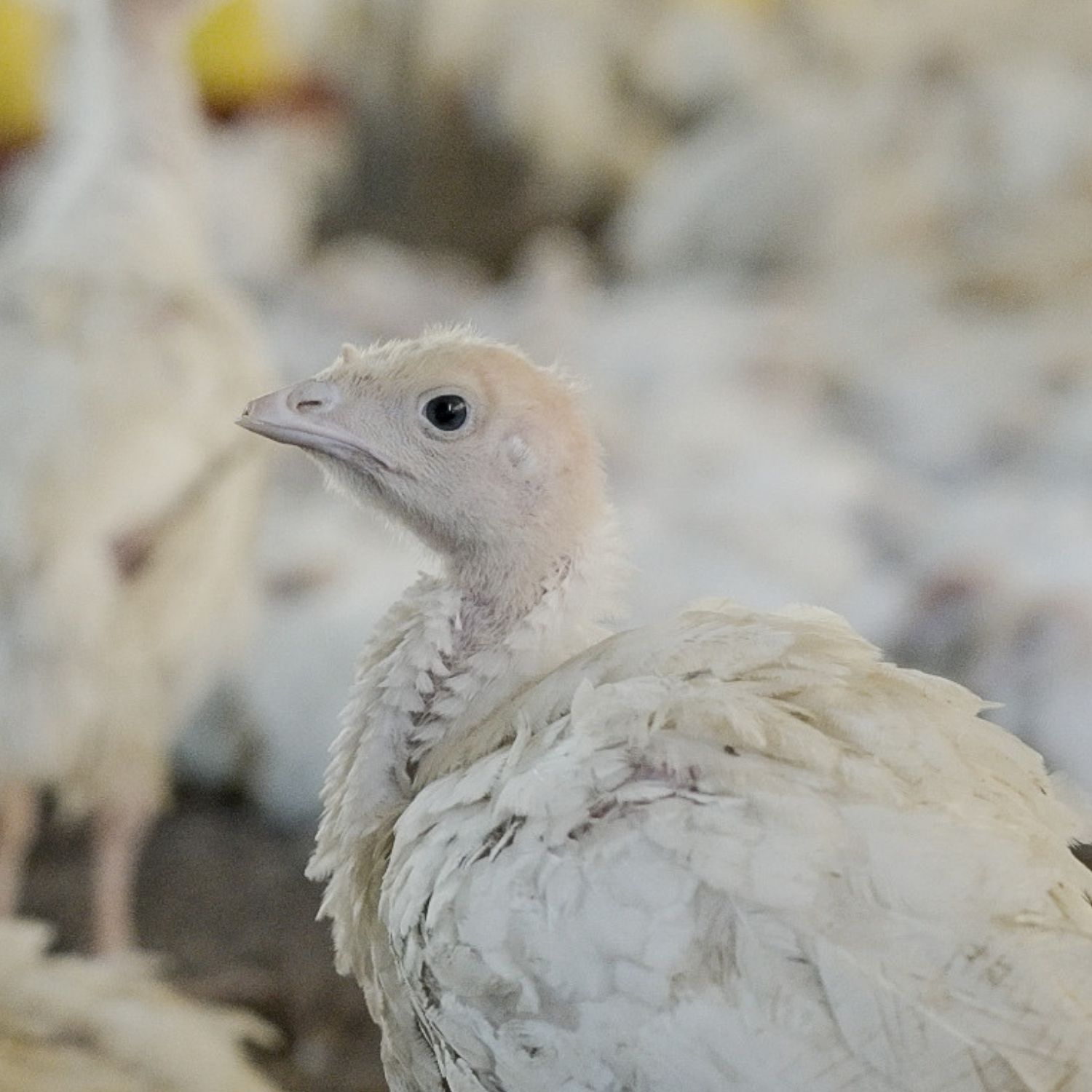Vancouver residents join Animal Equality to condemn foie gras
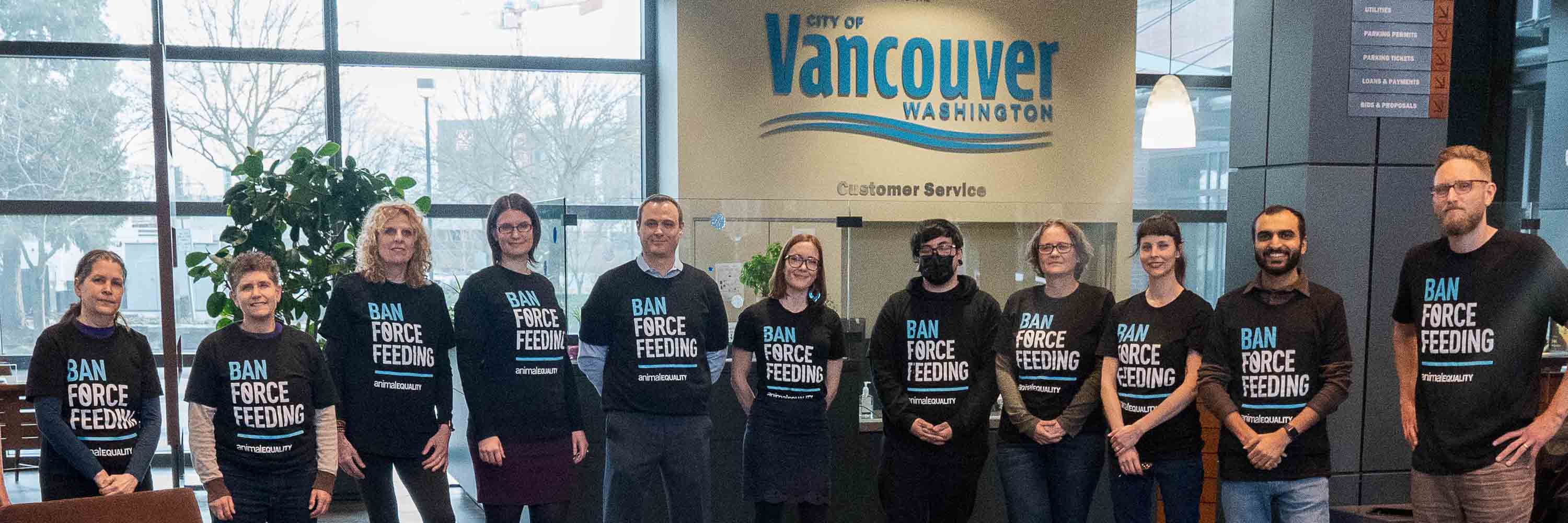
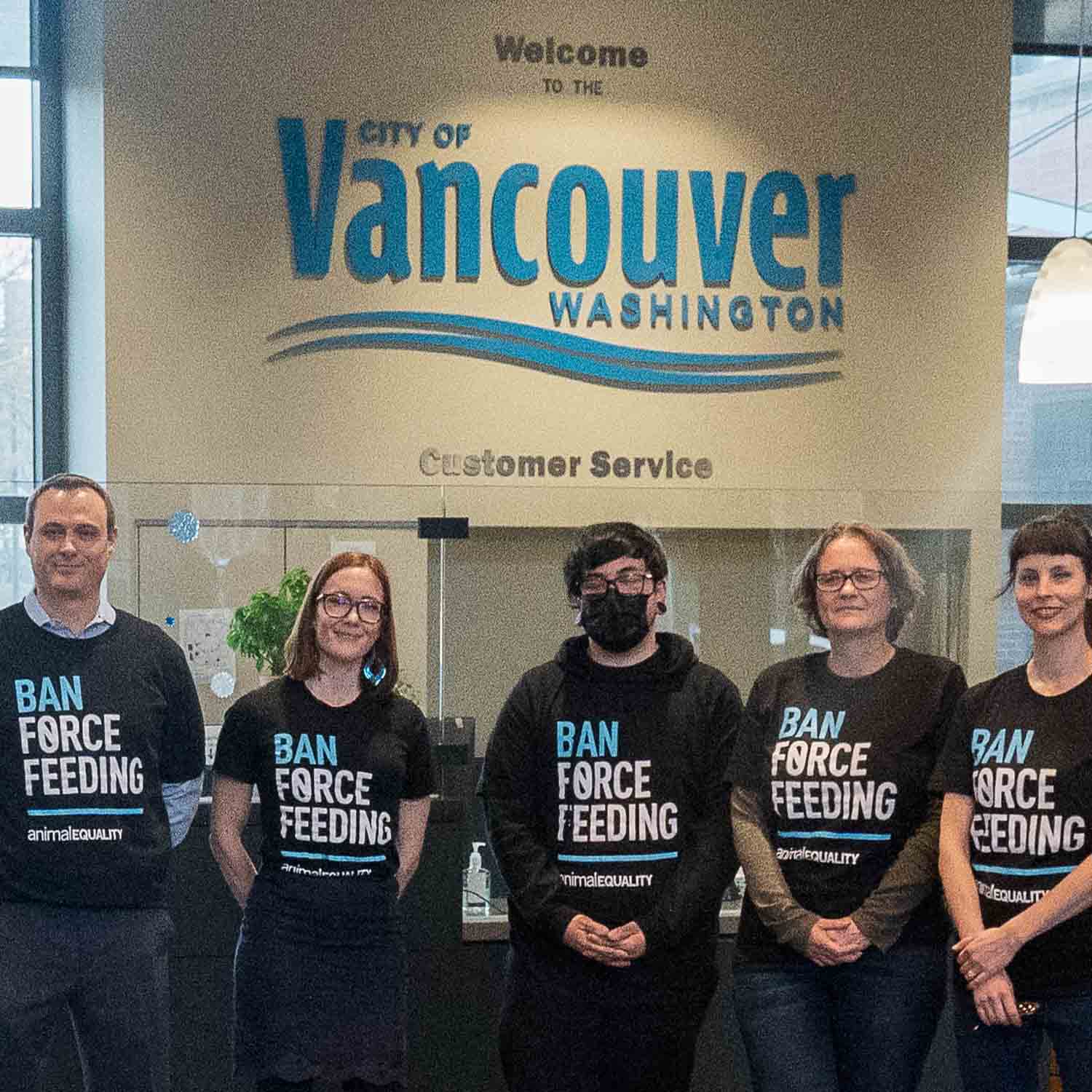
Update (June 27, 2023): On June 26, the City Council for Vancouver, Washington, voted unanimously to pass a resolution declaring the Council’s opposition to the retail sale of force-fed foie gras in Vancouver.
Passage of the resolution followed months of citizen engagement led by Animal Equality and local activist group Compassionate PDX. The City Council acknowledged the animal cruelty inherent in the foie gras production industry and the values of Vancouver residents who oppose the inhumane treatment of animals.
Although resolutions are not binding and are not enforceable, activists are hopeful passage of the resolution can pave the way for a full ordinance banning the product’s sale in the future.
Although we are disappointed that the City Council chose not to pass an enforceable ban at this time, we are encouraged by the Council’s official recognition of the cruelty inherent in the force-feeding process. We remain dedicated to working toward a full retail sales ban, to manifest Vancouver residents’ vision of a permanently foie-gras-free city.
Sarah Hanneken
Legal Advocacy Counsel for Animal Equality
On March 6, dozens of concerned residents in Vancouver, Washington, voiced their support for a city-wide ban on the sale of foie gras at City Hall. Following an evening workshop to discuss three proposed animal bills, including one on foie gras, the City Council gathered for a public hearing, where supporters joined Animal Equality with messages demanding a ban on force-feeding animals. At this hearing, advocates shared their testimonies and expressed their support of the ban.
One City Council member remarked on the size of the crowd, acknowledging the importance of this issue to residents. The Council members even voiced their own concerns about the ethical dilemma posed by foie gras. The workshop concluded with the majority of the present Council members declaring their willingness to issue a public statement condemning its sale in Vancouver.
While that sentiment was certainly appreciated, it was also met with frustration. A mere public statement, also known as a “non-binding resolution,” wouldn’t create any enforceable law to prevent restaurants from selling the product. Since the Council’s action falls short of their initial goal, hopeful Vancouver residents have since asked them to reconsider their course of action and move forward with a full ban – just as California and New York City have previously done.
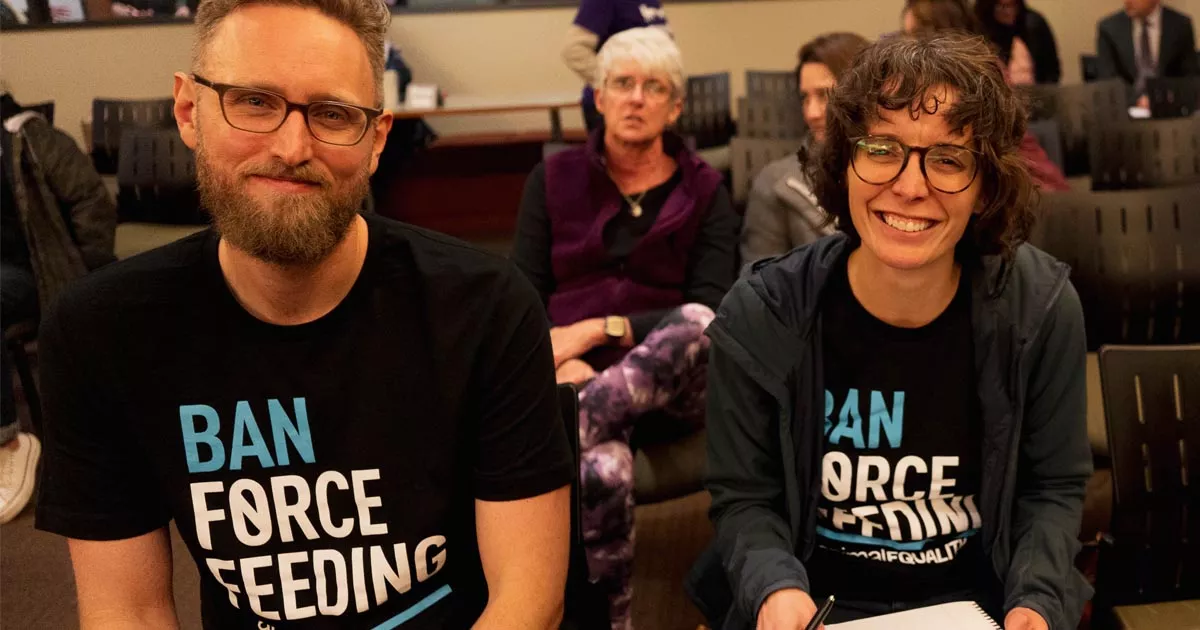
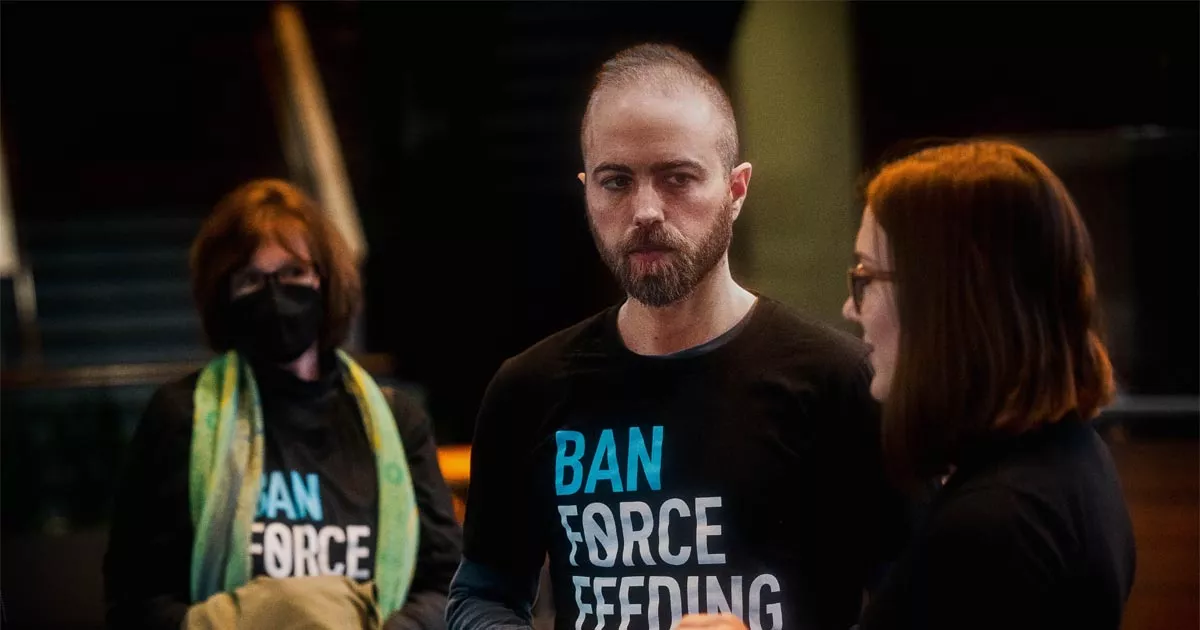
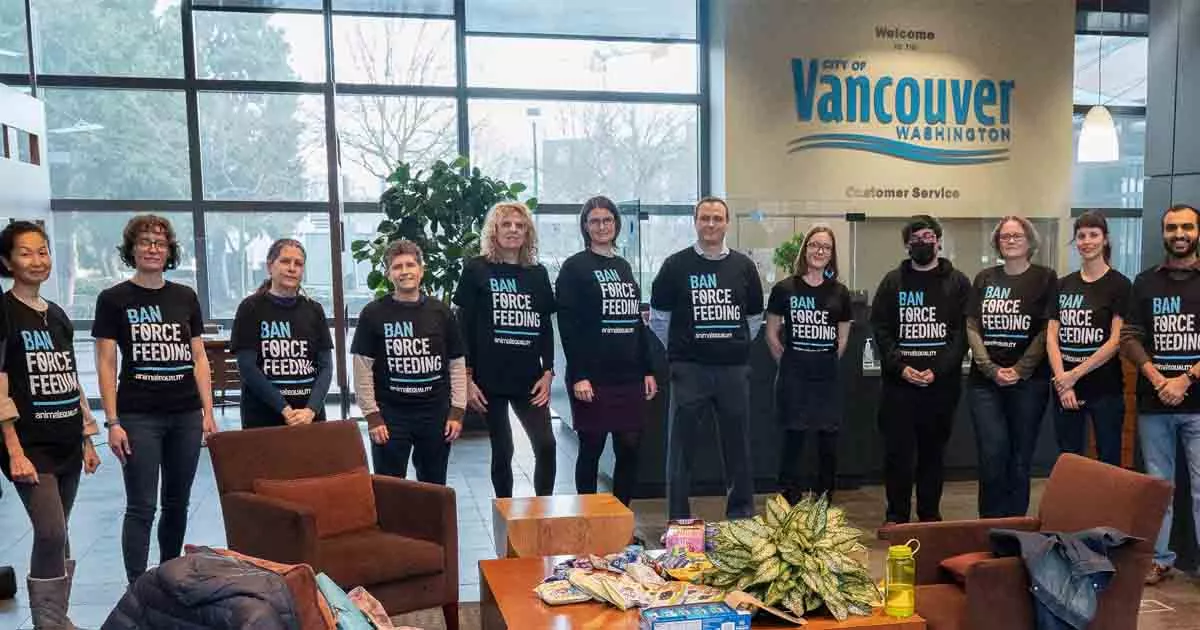
Foie gras: The world’s cruelest food?
Foie gras, French for “fatty liver,” is produced by force-feeding ducks or geese by shoving foot-long tubes down the animals’ throats and pumping food directly into their stomachs. The excess calories given to these ducks and geese cause them to store fat in their livers, which will grow up to ten times their normal size and begin to yellow from disease.
In addition to intentionally inducing liver disease in these birds, producers place them in extreme confinement until their deaths. These birds are often unable to walk or stand due to swollen abdomens, and many suffer from multiple organ failures or esophageal bleeding and scarring. They are generally killed after only a few months of life.
Foie gras production involves several elements of cruelty that go above and beyond the normal horrors of factory farming. Notably, foie gras farmers are intentionally trying to disease the animals in their care. While all factory farming is inhumane, I can’t think of anything more antithetical to ‘good animal husbandry’ than that.
Sarah Hanneken, Legal Counsel for Animal Equality
During our investigations into foie gras farms across Europe, Animal Equality also encountered broken beaks, living animals covered in blood, and others lying dead in their cages or on concrete floors. Most of these cages were too small to allow them to flap their wings. Even baby ducklings encountered rough handling and premature death.
Governments and businesses crack down on cruelty
If successfully passed, Vancouver would follow the State of California and New York City, as well as several European nations, India, Israel, Australia, and Argentina, all of which have banned the production, sale, and/or import of foie gras in some capacity.
Animal Equality’s campaign against foie gras began in 2011 when it launched an investigation into Spanish and French farms. After uncovering physical and psychological abuse on these “higher-welfare” farms, Animal Equality headed to Spain, where we discovered egregious cases of cruelty in 2012.
Following these investigations, both businesses and governments around the world were spurred to action. This began with Italy’s largest supermarket chain, which ended the sale of foie gras in 2012, followed by the Indian Ministry of Foreign Affairs, which passed a nationwide ban on its import in 2014.
Animal Equality’s investigations led to the temporary closure of German duck farms in 2014 and a well-supported 2022 campaign against the Ministry of Agriculture in Spain.
Meanwhile, our partnership with celebrities has been mounting pressure on the UK government to ban the import of foie gras. As reported by Huffington Post in 2018, British actor Peter Egan joined Animal Equality to deliver 100,000 signatures to Prime Minister Theresa May. This action led several restaurants to remove foie gras from their menus, while celebrities Alesha Dixon, Diane Morgan, and Miriam Margolyes joined the campaign this year.
In the United States, Portland resident Sarah Hanneken–Legal Counsel for Animal Equality–has initiated an effort to ban the sale of foie gras in her home city while supporting local residents’ efforts in nearby Vancouver. If passed, these bans could set a precedent for other localities around the nation to follow suit.
Changing problematic industries often begins with local legislation. Local governments can and should represent their constituents’ values by passing bans on products that pose unnecessary risks to public health and morals. Portland and Vancouver are full of concerned residents who want to see their cities take charge in the fight to change the cruel foie gras industry. These residents are engaging in the one process available to them to make this happen: engaging in the democratic process. We are doing our part to ensure their pleas don’t fall on deaf ears.
Sarah Hanneken, Legal Counsel for Animal Equality
How we can help ducks
Foie gras can easily be replaced by cruelty-free alternatives. You can prevent ducks and geese from pain and suffering by leaving them off your plate.
You can also sign our petition to voice your concerns to legislators nationwide. At Animal Equality, we are demanding protections for the most defenseless among us.
However, ducks and geese are not the only animals suffering in the animal agriculture industry. That is why millions of Americans have shifted to a plant-based diet, replacing meat, dairy, and eggs with countless animal-free alternatives. Simply visit Love Veg to discover tips, tricks, and recipes to make your transition seamless.
You don’t have to wait for legislative change to take action for animals. You can defend them from pain and suffering today.
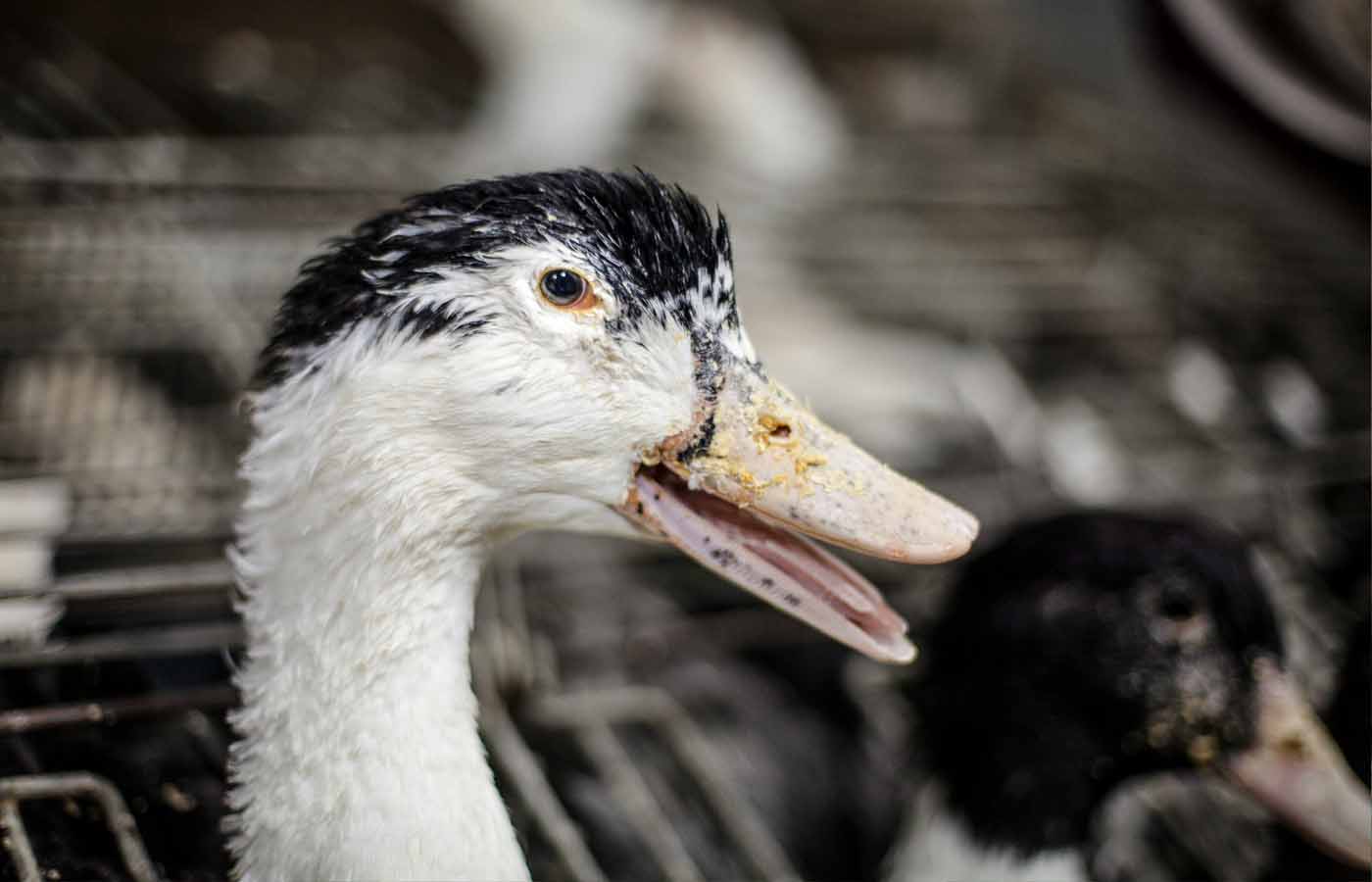
PROTECT DUCKS
Even before hatching from their eggs, ducklings communicate with their close‑knit families.
Protect these families by eating plant‑based and ditching animal products.

